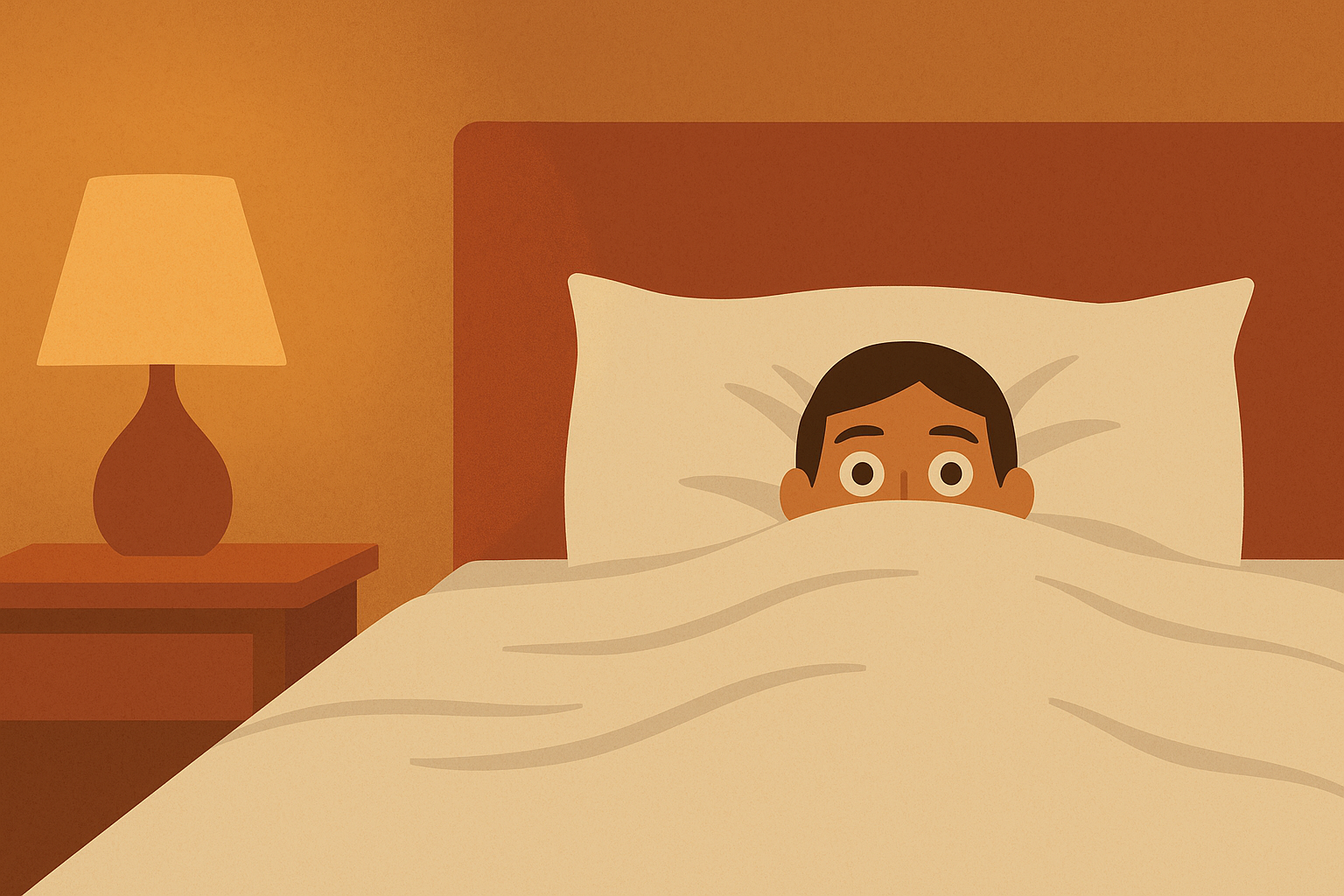Your Brain Doesn’t Trust Hotels (And It’s Kind of Right)

You know the feeling. You finally check into your hotel, climb into bed, and... you just can’t fall asleep. The room is quiet, the sheets are clean, the pillows are perfect, and still, you toss, turn, and wake up groggy.
It turns out your brain might be to blame.
The First-Night Effect Is Real
Researchers have a name for this phenomenon: the First-Night Effect (FNE). It’s what happens when you sleep in a new place, and your brain doesn’t fully trust the environment yet. Even while you're snoozing, part of your brain stays on high alert—ready to react to anything that feels "off."
In this study from Brown University, researchers used advanced imaging to track brain activity during sleep. They discovered that during the first night in an unfamiliar environment, one hemisphere of the brain (usually the left) remained more active than the other. This area, known as the "default mode network," is associated with internal awareness and scanning for threats.
Why The Left Side?
Scientists believe the left hemisphere may be more involved in monitoring external stimuli during unfamiliar situations. It’s the side of the brain most attuned to language, logic, and structured patterns—things that help you assess new surroundings.
Your body may be still, but your brain is on guard duty.
Your Brain Plays Night Watch
Think of it as a built-in survival system. This left-brain alertness is similar to what scientists see in animals like dolphins and some birds, which actually sleep with one side of their brain at a time to stay safe from predators.
Here’s what the researchers found:
-
During deep sleep, the left side of the brain showed more activity in unfamiliar places.
-
This same side responded faster to subtle sounds or disturbances during sleep.
-
In short, part of your brain is monitoring your surroundings while the rest of you tries to sleep.
So the next time you wake up every hour in a new hotel room, you're not being dramatic. Your brain just doesn’t know if it’s safe yet.
Why Does This Happen?
This weird sleep behavior may be evolutionary. When you're in a place you don't recognize, your brain goes into a kind of low-power defense mode—ready to jolt you awake at the first sign of trouble. It’s like your internal security system just kicked into high gear.
And although that might have helped us survive in the wild, it’s less helpful when you’re just trying to rest before a big meeting or a long travel day.
Can You Fix It?
Here’s the good news: the First-Night Effect usually fades after the first night. Once your brain decides the coast is clear, it returns to normal sleep patterns.
Still, there are a few things you can do to help your brain settle down faster:
Bring familiar cues: Pack a pillowcase, blanket, or even a scent (like lavender or your usual laundry detergent) that reminds your brain of home.
-
Stick to your usual sleep routine: Your wind-down rituals can signal safety and consistency.
-
Minimize noise and light: Use earplugs or white noise to cut back on disruptions. Eye masks might help as well.
-
Avoid stimulants late at night: That includes caffeine, alcohol, and your favorite doomscrolling apps.
The Bottom Line
If you ever feel like you just can’t sleep that first night in a new place, it’s not all in your head.
It’s half in your brain.
Your mind is doing what it was built to do: protect you. Even when you’re wrapped in crisp hotel sheets, your brain is running a quiet night watch, keeping tabs until it decides you’re safe.
It’s weird. It’s fascinating. And it might explain why night two always feels so much better than night one.








